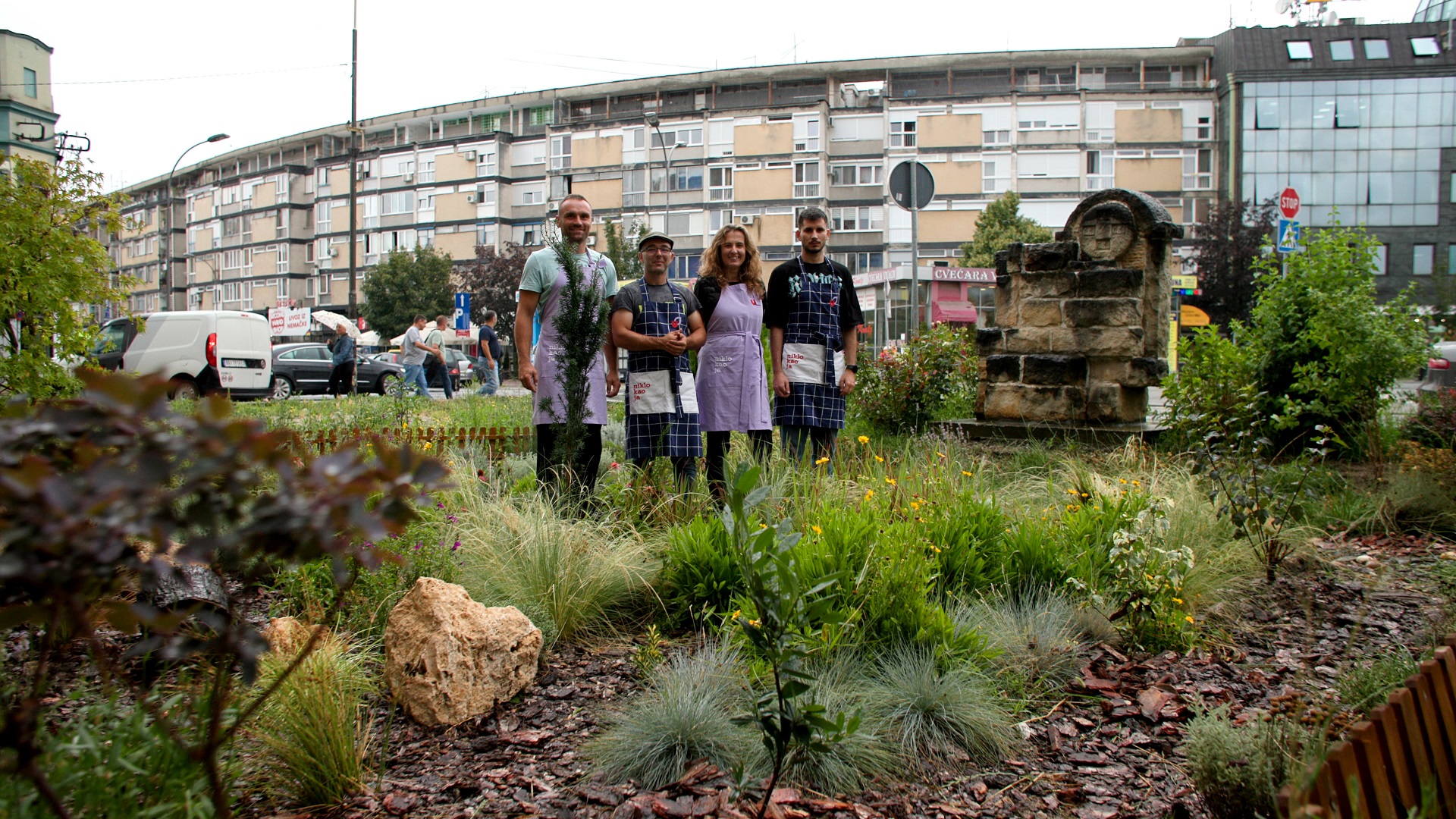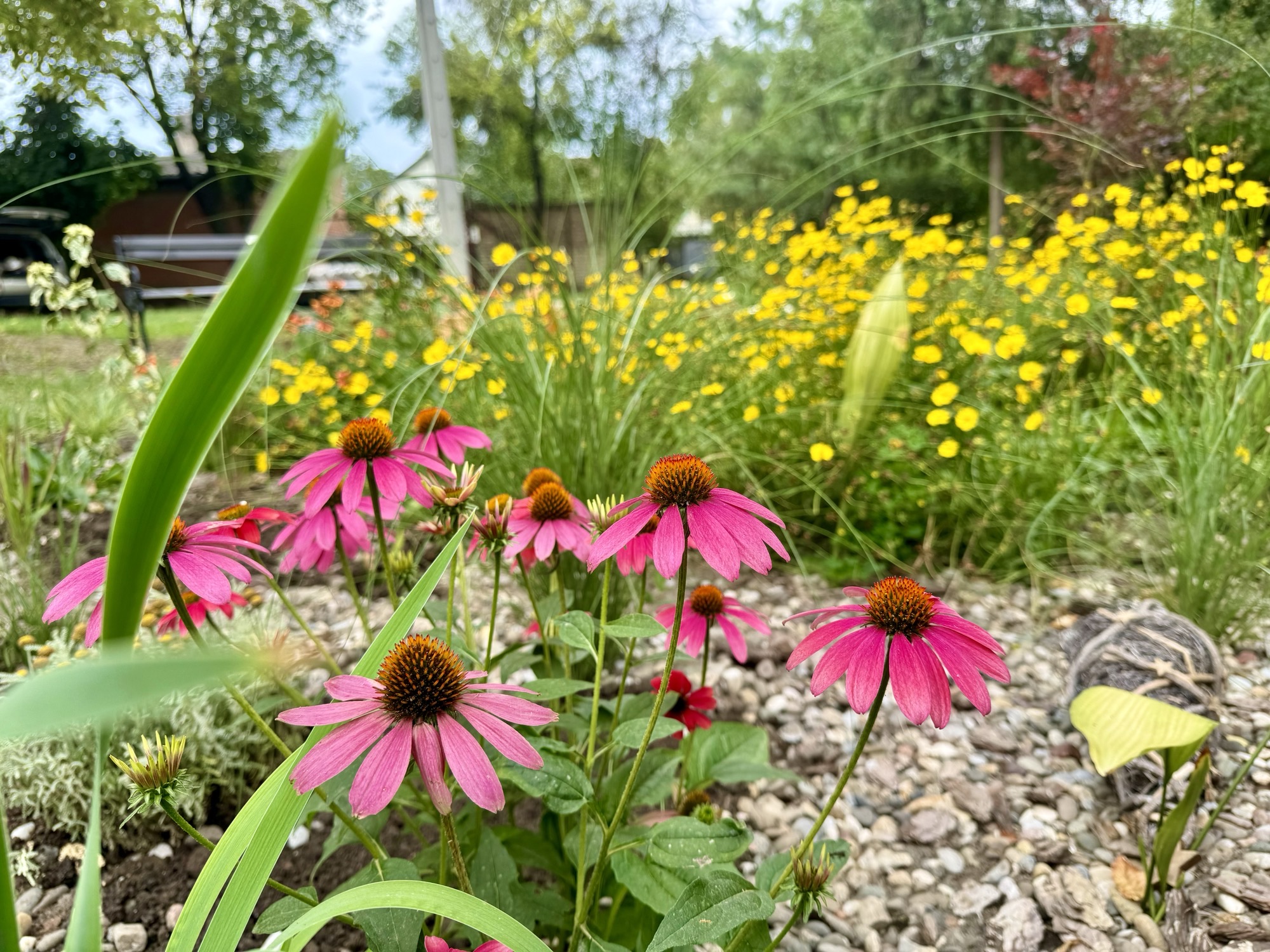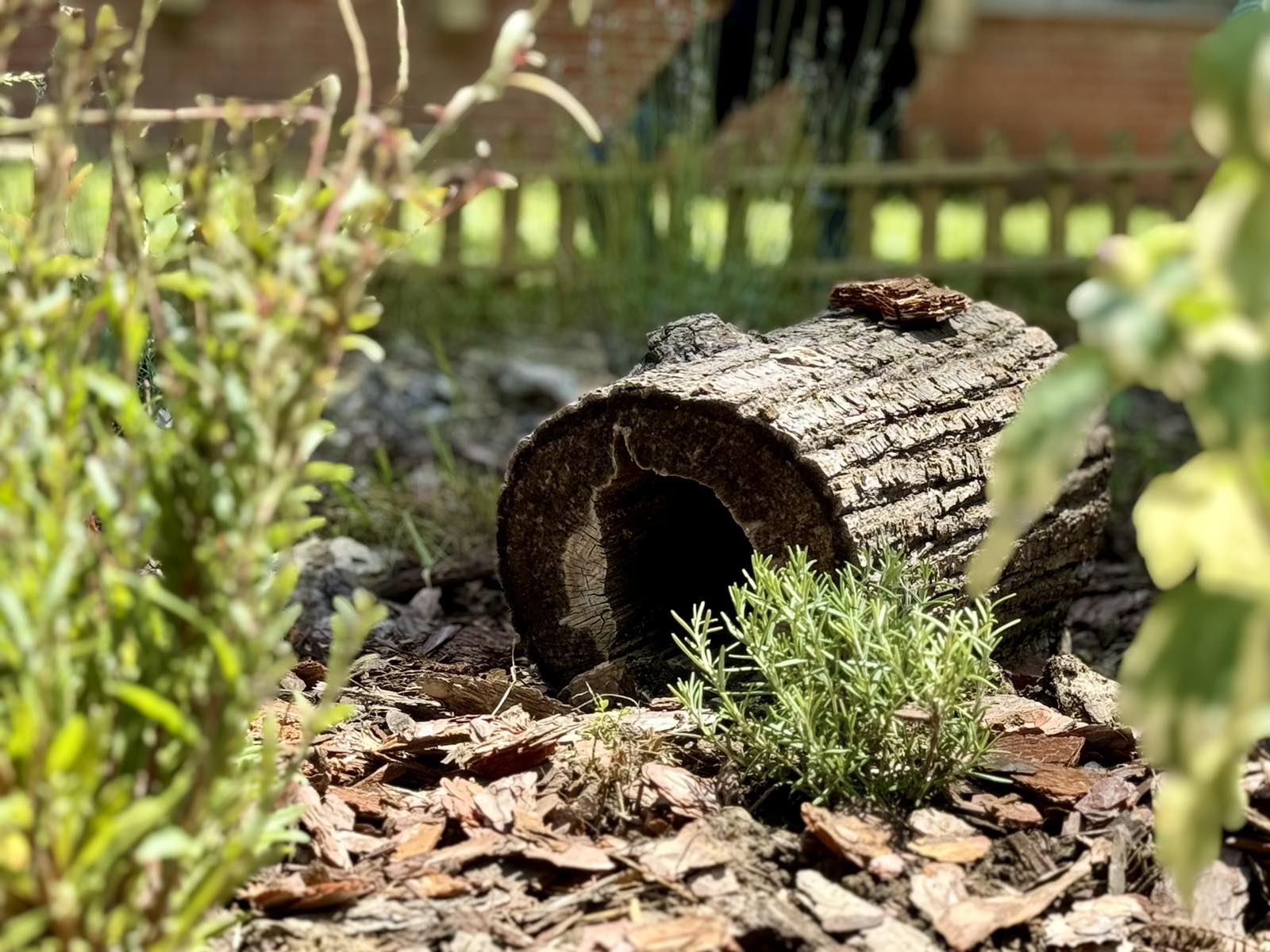
Niklo kao ja: Urban gardens against climate change
A1 Serbia Continues to Green Urban Areas Across Serbia
Did you know Belgrade now boasts a sunny garden of diversity, Subotica has a dry succulent garden, and Bečej features an aromatic garden? Over the past period, 10 cities across Serbia have received diverse urban gardens as part of the “Niklo kao ja” project. In the first phase of this project last year, cities received their first rain gardens—urban green spaces that help mitigate the effects of heavy rains, floods, and landslides in urban areas. This year, to enhance and expand these established areas, all gardens have been supplemented with furniture and new plant species, selected according to the needs of the gardens’ locations. The goal of the “Niklo kao ja” project is to provide a direct response to the already occurring negative consequences of climate change, implemented by A1 Serbia in cooperation with the NGO Ekonaut and local governments.

The Belgrade garden, as one of the 10 urban gardens realized within the “Niklo kao ja” project, has been transformed into a sunny garden of diversity. It is located in Gastrošor, a popular city spot just one kilometre from Republic Square. “The urban design of the garden in Gastrošor has met requirements such as habitats for insects, birds, and small animals, all achieved in one concept. This type of garden includes flowering decorative plants, evergreen deciduous trees, perennials, aromatic shrubs, and coniferous plants that contribute to biodiversity with their presence. The shape of the garden represents a circular unit, which has an aesthetic purpose but also plays a key role in improving biodiversity,” said Vladimir Milutinović, landscape architect and collaborator with UG Ekonaut.
In 2023, rain gardens were established in 10 cities in Serbia: Belgrade, Novi Sad, Subotica, Novi Pazar, Smederevo, Kragujevac, Čačak, Niš, Bečej, and Sombor, with Bečej’s garden voted as the most beautiful. This year, the project plans to plant urban gardens in another 10 cities across Serbia, spreading a positive impact on the environment and quality of life throughout the country.

Through its ESG strategy, A1 Serbia continuously invests in achieving long-term sustainability goals. This approach includes not only projects addressing climate risks and biodiversity protection, like “Niklo kao ja,” but also long-term plans for decarbonization, increasing the share of sustainable energy from its production, improving energy efficiency in business operations, and adhering to the principles of a circular economy. As a leading prosumer in the telecommunications sector, A1 has so far installed nearly 6,000 solar panels at 330 locations, equivalent to the annual electricity consumption of over 750 households. Investments in renewable energy sources are part of the company’s strategic commitment and the goal set by the entire A1 Group to achieve climate neutrality by the end of 2030.
Related posts
A1 Serbia launches educational game to promote online safety for children
This initiative is part of A1 Serbia’s broader ESG strategy, aimed at ethical technology use
Pet Day: Mars reminds us of the importance and benefits of pet adoption
362 million dogs and cats worldwide currently live on the streets or in shelters
IKEA unveils new edition of Its iconic STOCKHOLM collection
The latest edition features a wide range of furniture, textiles, lighting, and decorative pieces




